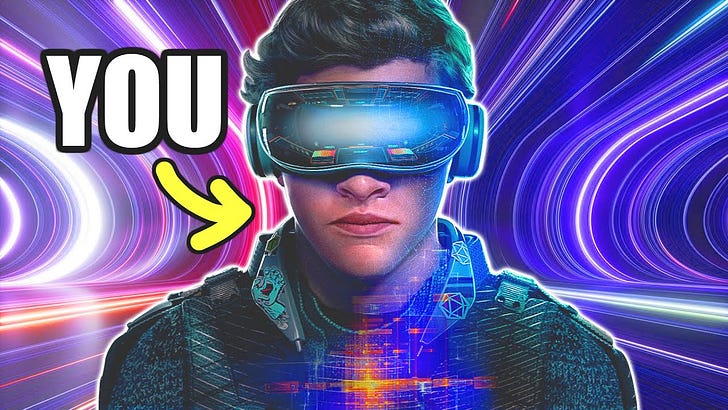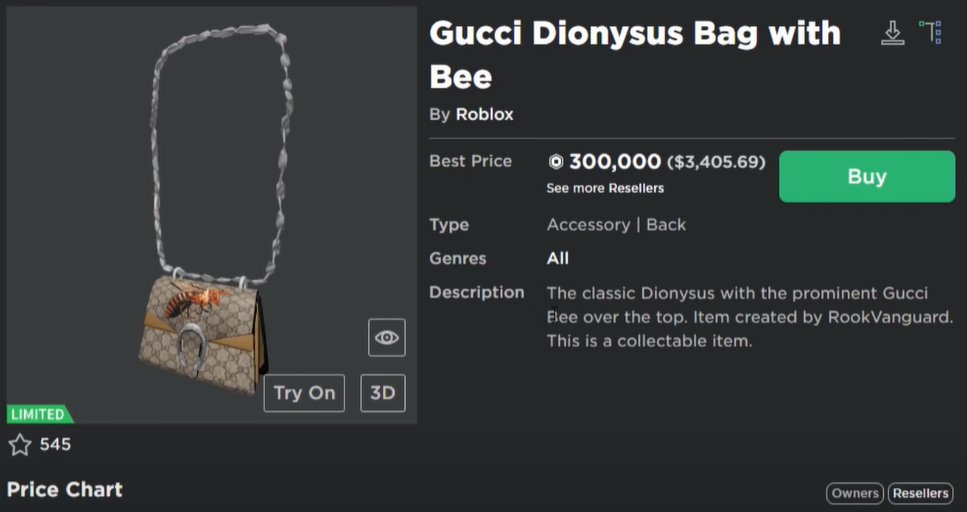🎧 The Metaverse - The Future of The Internet
We are becoming increasingly digitally native and moving at an incredible pace toward what is called “The Metaverse” and it will change the Internet forever.
Back with another 🎧 newsletter! However, if you prefer reading, keep scrolling.
In February 2019 the DJ Marshmello held a concert in Fortnite that was experienced by 11 million people in real-time. Ten months later there was an exclusive viewing of a clip from Star Wars: The Rise of The Skywalker featuring a live and interactive interview with Director JJ Abrams. In April 2020, the rapper Travis Scott had a record-breaking 27.7 million unique attendees for his 5 Astronomical concerts.
We are becoming increasingly digitally native and our identities are becoming more connected with our online presence. We’re buying more skins, virtual art, and virtual real estate than ever before to match our online personas. This shift toward an online reality is happening extremely fast and while it is obvious to younger generations, it’s still mind-boggling for older ones.
In 2010, there were 2 billion people online - about 30% of the world’s population. Today, over 4.5 billion people, 60% of the world’s population, are online and American adults spend over 11 hours per day interacting with digital media.
We are moving at an incredible pace toward what is called “The Metaverse” and it will change the future of the internet.
What Is The Metaverse?
The word “Metaverse” was first used in Neal Stephenson’s 1992 science fiction novel “Snow Crash”, where humans interact in a huge virtual multiplayer world, but the idea of a metaverse can be traced all the way back to the 1970s (if not earlier).
The metaverse isn’t a game, hardware or an online experience. Those things already exist. The metaverse is the next step in the evolution of the internet: a wide set of protocols, technology and infrastructure with content built on top.
The internet wasn’t built for large collective experiences, but to share files from one computer to another through underlying protocols like HTTP, SMTP and FTP which are the foundation all other platforms, from Google to Facebook, are built on top of. Even the large experiences in Fortnite and Roblox that are amassing millions of users require sharding to handle the load.
The Metaverse will need a broader and more complex protocol solution since it requires persistent connections that update in real-time. It’s an entirely new computing platform and content medium enabling us to produce and capture trillions of dollars of economic value - a gateway to new digital experiences for both entertainment and labour. The metaverse isn’t a destination, but a series of destinations stitched together in an always-connected and shared space.
How Will It Emerge?
The metaverse won’t just pop up in a day, it will be a gradual evolution. The metaverse will need to be a natural place of congregation, like a town square or a bar, where over time more content and experiences will be layered on top. This allows for a flywheel to start spinning, and for network effects to set in, pulling more users and content into the Metaverse.
Fortnite is an example of how congregation affects digital worlds. It started out as a game but grew into a social medium where players would log on not just to play, but to socialise. This pulled in even more players and eventually creators like Travis Scott and JJ Abrams which fueled the flywheel. This evolution has made it a type of “proto-metaverse”, an early example of how the actual metaverse might develop and look like.
Open vs Closed Metaverse
Companies like Unity, Roblox, and Epic Games are all working toward a metaverse. Will the Metaverse be closed and owned by one company like The Oasis in Ready Player One, or a completely open and interoperable platform?
Epic Games’ founder and CEO Tim Sweeney said:
The Metaverse is going to be far more pervasive and powerful than anything else. If one central company gains control of this, they will become more powerful than any government and be a god on Earth.
This is why Sweeney advocates an open metaverse: platforms and protocols that are connected and interoperable. This will spawn a digital space without corporate control and most of all personal ownership with portability of digital assets and personal data.
The Proteus Effect
In 2018, over $1 billion of Fortnite’s $2.4 billion revenue came from skins and emotes. But Fortnite is not the only game capitalising on increased demand for digital goods.
In May 2021, Gucci released a virtual clothing line in Roblox. One of the bags, the Gucci Dionysus Bag with Bee, originally retailed for 475 Robux, about $5.5. However, it was only sold for 1 hour and many players missed out on buying it. Now the bag is a hot commodity on Roblox’s second-hand market averaging over $1600 and being sold for up to $4115.
Why would anyone pay this for an online item?
The Proteus Effect is a phenomenon where our behaviour within virtual worlds is influenced by the characteristics of our avatars. We behave in the way we see ourselves. People with more attractive avatars are more intimate and open, and people with taller avatars are more confident and assertive. But what’s even more interesting is that online identities translate to offline interactions. If you have an avatar with confident and assertive traits, you tend to mimic those traits later offline.
Many kids, teenagers and young adults now want digital items over physical items, and it’s not hard to imagine a future where an increasing number of people prefer a digital reality where the restraints of the physical world have been removed.
A New Economy
However, these skins and items are currently locked onto one platform. If you buy a Fortnite skin it won’t transfer into Roblox or League of Legends. While this is the norm online, it’s equivalent to only being able to wear a Nike shirt at a Nike store or event. A watershed moment will happen when skins and events will be enabled across multiple platforms, games and experiences. This will not only open up value for users but also for companies.
The metaverse will not only enable new experiences, but new economies to form. We are already seeing the first step of this: Artists selling their digital artwork as NFTs, Roblox paying out an estimated $250 million to creators, Patreon paying out $2 billion to its creators, and gamers making money off “play-to-earn” games like Axie Infinity.
While many see the Metaverse as a dystopian future where people are seeking escape from their realities, it’s actually the opposite. Without the limitations of the physical world, the metaverse will have endless possibilities, enabling new ways to earn a middle-class income in ever-growing and profitable niches.
This is part of an ongoing series on the evolution of the internet. To read more:
Is Disruption Dead? - how centralised platforms affect the internet.
Why Decentralisation Matters - why decentralisation is a misunderstood concept.
Web 3.0 - The Next Phase of The Internet - The shift from Web 2.0 to Web 3.0.
Did you enjoy this newsletter? Please subscribe if you haven’t already!








